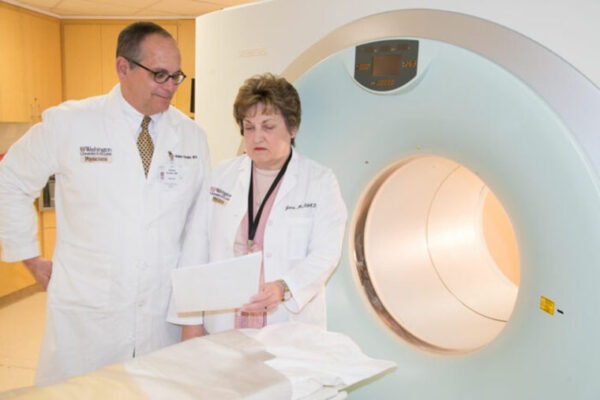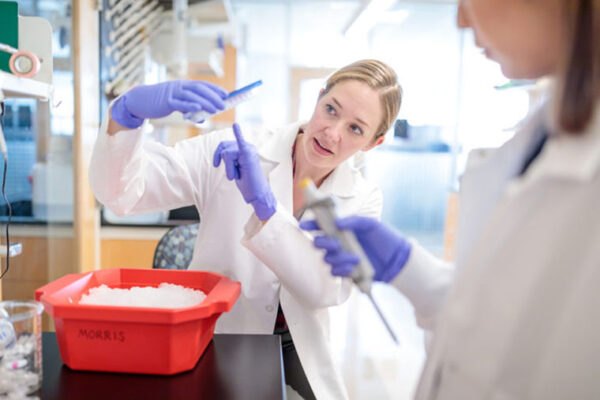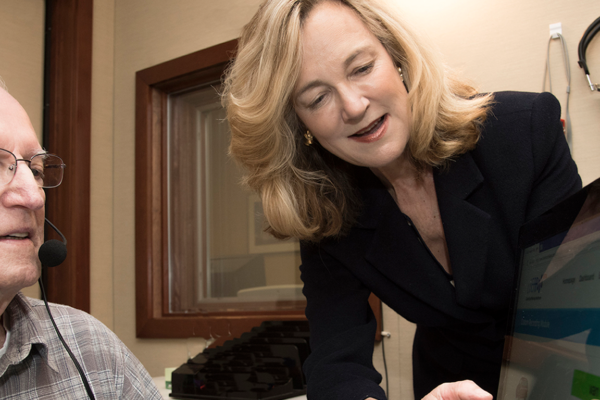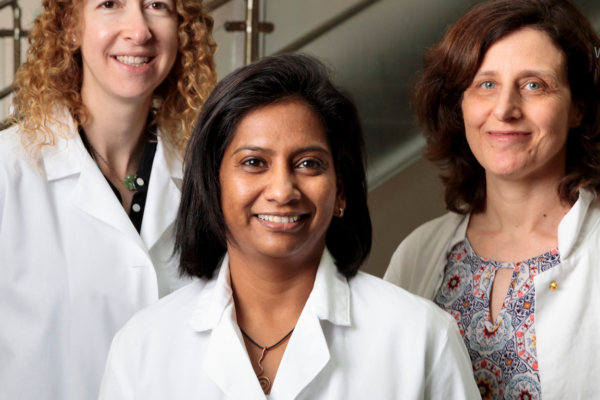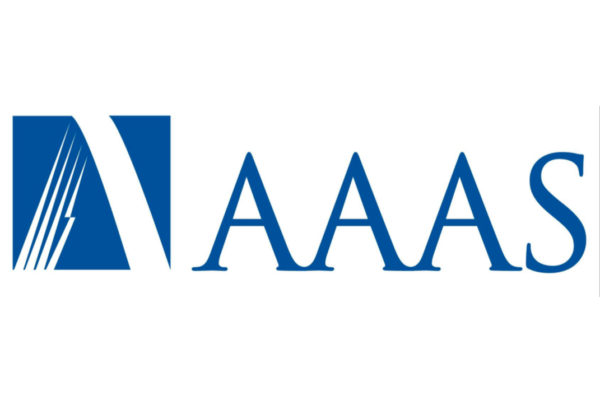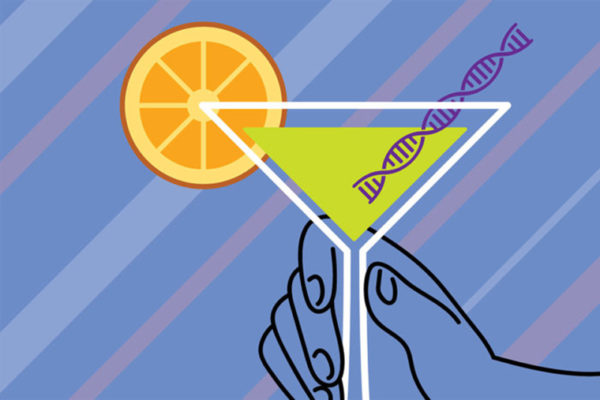Artificial intelligence and the future of medicine
Artificial intelligence has the potential to transform medicine. Two School of Medicine experts discuss how AI may change health care and what challenges need to be addressed before it can become part of routine care.
Regrowing damaged nerves hinges on shutting down key genes
School of Medicine neuroscientist Valeria Cavalli studied mice neurons to learn how cells regrow after injury. Her findings could one day lead to better treatments for spinal cord injury.
$6.3 million for center to develop new tracers for PET scans
With the help of a five-year, $6.3 million NIH grant, School of Medicine radiologist Robert J. Gropler, MD, aims to help PET technology reach its potential by expanding the community of PET researchers.
Scientists design way to track steps of cells’ development
Scientists at Washington University School of Medicine in St. Louis have developed a new tool described as a “flight data recorder” for developing cells, illuminating the paths cells take as they progress from one type to another.
The Trailblazer: Nancy Tye-Murray
Nancy Tye-Murray, PhD, is the first female WashU faculty member to found a startup. clEAR trains people to hear better using their loved ones’ voices.
Rates of chronic kidney disease, deaths outpace other diseases
An abundance of high-sugar, high-salt foods in many American diets and obesity-related health problems such as diabetes are likely driving an increase in kidney disease cases, including in young adults, according to School of Medicine researchers.
$20 million gift boosts multiple myeloma research
A $20 million gift from Paula C. and Rodger O. Riney will help researchers at Washington University School of Medicine in St. Louis develop new treatments for multiple myeloma.
The Researchers: Battling deadly TB
Three of the most innovative TB researchers call Washington University School of Medicine in St. Louis their professional home. And they are all women.
AAAS names 11 Washington University faculty as fellows
Eleven faculty members at Washington University in St. Louis are among 416 new fellows selected by the American Association for the Advancement of Science (AAAS), the world’s largest general scientific society.
Alcohol dependence, psychiatric disorders share genetic links
An international team of researchers, including a team from the School of Medicine, has identified a gene that regulates how quickly the body metabolizes alcohol as a key risk factor for alcohol dependence. The researchers also linked genetic factors associated with alcohol dependence to other psychiatric disorders.
Older Stories


